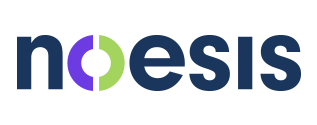Organizations are discovering that teaching employees about their brain is helping them improve self and social awareness. This science based education provides compelling motivation for changing behaviour to increase productivity and engagement.
Rethinking productivity
A simple example: Setting actions for achieving your goals. Once employees understand how their brains work, and the chemistry required to sharpen focus and increase engagement in a task – they set about trying to create that state for themselves. Who wouldn’t?! Our brains are wired to move toward rewarding experiences. Neuroleadership, as a field, provides practical tools for people to take responsibility for their experiences and impact in the workplace.
There is a way to maximize the emotional pull that a goal has on you. Successful goal achievement however, requires much more than setting a goal you are passionate about. It comes down to taking action each day and learning from new experiences and information. Taking action in ways the brain likes helps you build new wiring that nudge you closer to the finish line.
The right kind of actions
So what do the right kind of actions look like? Research shows that being able to cross actions off as you achieve them is highly rewarding to our brains. Literally drip-feeding your brain with the neurotransmitter dopamine which keeps you curious and motivated. A well constructed action is also very specific. There is a clear task that will be completed in a particular timeframe. Completing the task provides a mini ‘win’ and serves as a step closer to the bigger goal. Its easy to let yourself off the hook when actions you set are ambiguous or complex.
Your brain is wired to seek out socially rewarding experiences. So its important you are clear about who to involve and who is impacted by your actions. Identifying how actions benefit those you care about, can ramp up the ‘high’ experienced from carrying out a task. And finally it’s important that actions you set are truly things you can influence and do yourself.
Ultimately to reach your big goals, you need to learn and benefit from the small actions you take on your journey to goal achievement. Neuroscientists have recently discovered that we learn more from experiences and tasks that activate our hippocampus. The stronger the hippocampus fires up, the more likely you are to remember that information later.
Make your learning stick
Neuroscientists such as Dr. Lila Davachi suggest the following ways to deepen and sustain learning and memory (The NeuroLeadership Journal, Dec 11 2015):
- Attention: Minimize interruptions and distractions and focus fully on what you are doing.
- Generation: Reflect upon, write about and share with others what you are doing and its relevance.
- Emotion: Set actions for yourself that you will enjoy and are rewarding to complete.
- Spacing: Spread new learning and complex activities into small simpler pieces over time.
Keeping these insights in mind as you plan out the actions you need to take to reach a longer term goal, will serve you well in sustaining a focus on your goals. Good luck!


Recent Comments